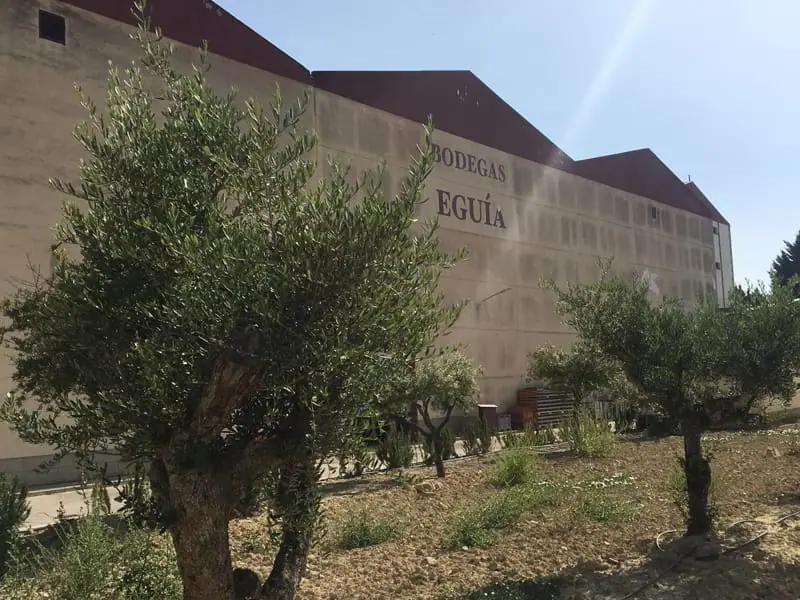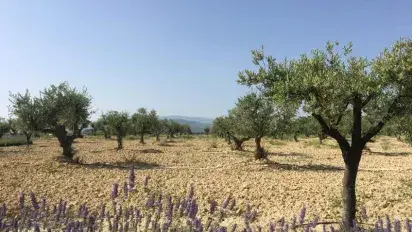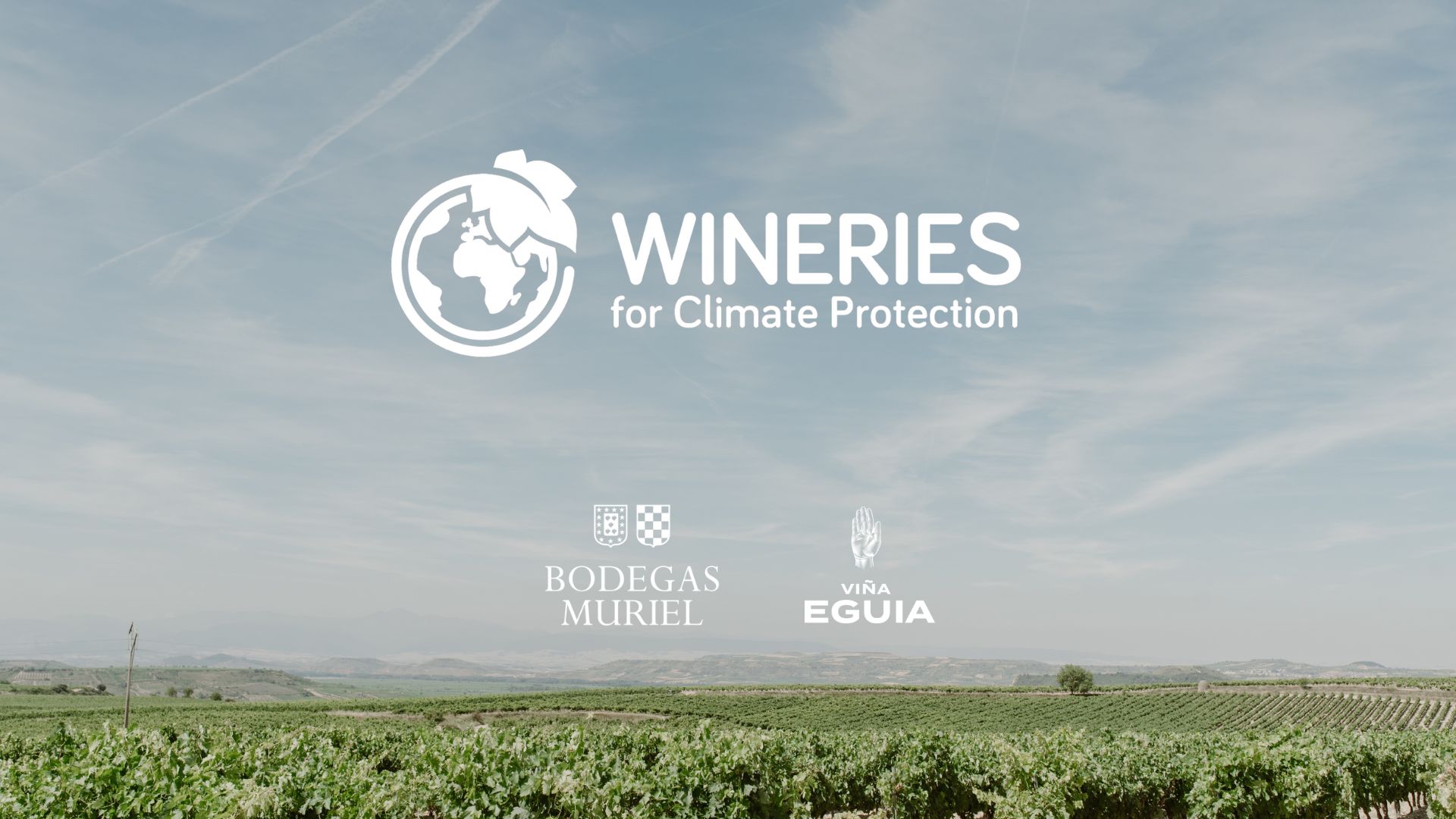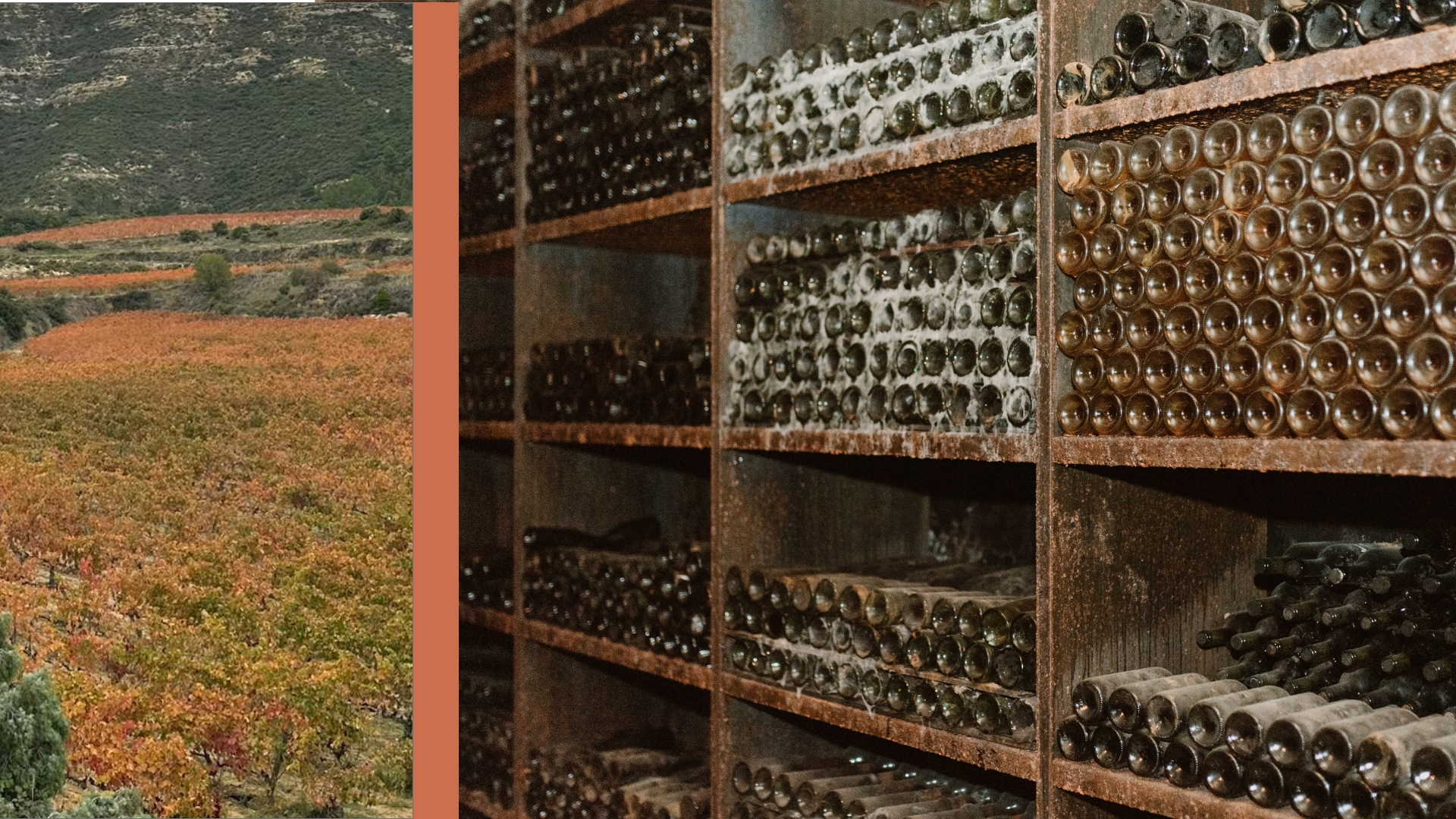Although nowadays their presence is scarce ?especially comparing with the almost 13,000 hectares of vineyard?, olive trees are not a new crop in Rioja Alavesa. As in all the lands of the broad Ebro river valley, olive growing has been a constant since, at least, the Roman era, more than 2,000 years ago.

On our side of the Ebro, the best time for olive growing, at least since there is documentary evidence, was in the late 18th century, where a mass of olive trees used to surround the different villages, especially in the region's south-eastern sector, of a warmer and drier climate which therefore is more favorable for this crop.
Then the vineyard was gaining ground throughout the 19th century to almost become the only crop. But the plague of the phylloxera devastated the vine plants. At the beginning of the 20th century, the vineyard surface went from 12,000 to 300 hectares. In the consequent crop substitution one of the winners was, again, the olive tree. However, the vineyard vastly regained its leading role, since it turned to be a more profitable crop. In the 1940s, when everything was scarce, the wood from the uprooted olive trees was transported to the nearby city of Logroño, where it fed the heating.
In those same times the first cooperative mills were created in the towns of Oyón and Moreda de Álava. Today Rioja Alavesa oil mills are already four, and they are knowing a renewed growth. Together, these facilities receive 200,000 kilos of olives of the arróniz variety, native to the region and of much of Navarra. It produces an expressive extra virgin olive oil (evoo), of yellowish green colour. It has a fresh aroma, of freshly cut grass, and a medium fruity flavour.
Little by little, small olive plantations are added all throughout the region and new projects are emerging. The Rioja Alavesa Oil Festival, held every March in Moreda, is becoming an unmissable event for food lovers and, in particular, good extra virgin olive oil enthusiasts.
Now the panorama looks colourful as the silver green of our new trees leaves.
 "
"
You may also be interested in:




